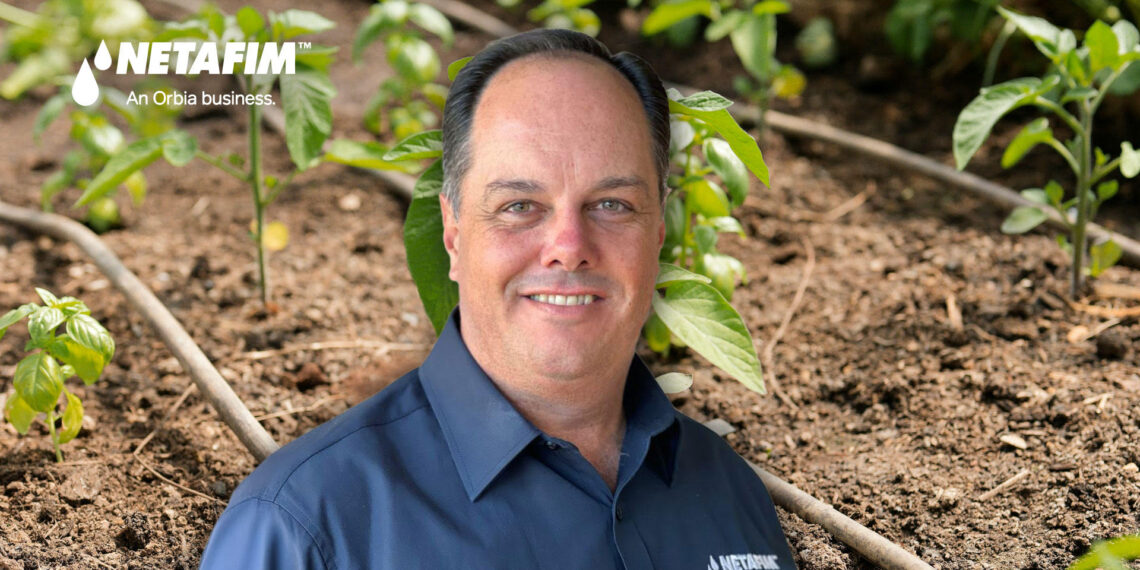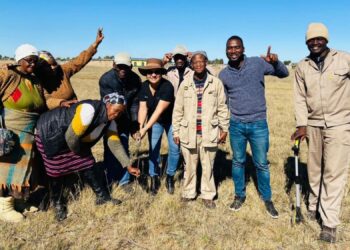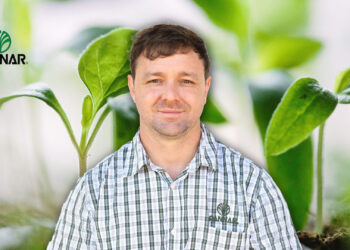Netafim East Africa is driving more resilient and profitable farming in Kenya through precision drip irrigation that saves up to half the water while boosting yields and crop quality.
Having Netafim’s products available in Kenya helps farmers in this country fundamentally change the way they grow crops, allowing them to grow significantly more food while using fewer resources. Instead of methods like flood irrigation or relying on unpredictable rain, drip irrigation delivers water and nutrients in precise, small doses directly to the plant’s roots.
According to Charles Wright, Netafim sales manager for SADC & East Africa, “Water savings are the most critical benefit. Drip irrigation is extremely efficient, cutting water use by up to 50%. In a country facing water scarcity and drought, this allows farmers to continue producing crops even with limited water, making their farms more resilient to climate change.”
Other benefits for farmers who adopt precision irrigation include:
- Healthier, more uniform plants lead to higher yields and improved market value.
- Lower input use, such as using less fertiliser and energy, results in higher profits.
- Fertigation, applying fertiliser through the driplines, stops waste, reduces costs, and is better for the environment.
- Low-pressure systems cut energy and fuel costs for pumping.
- Cost-effective driplines designed for smallholder farmers can be powered by gravity, eliminating the need for electricity or pumps and making modern irrigation accessible to rural communities.
Related stories
- Netafim leads the drive for water-smart agriculture in Africa
- Netafim celebrates 60 years of driving precision irrigation
The importance of climate-smart irrigation in Kenya
According to Wright, agriculture is the backbone of Kenya’s economy, contributing about 20‑25% of the GDP. A large portion of Kenya’s rural population depends on agriculture for income and food security, while exports of tea, coffee, flowers, and horticultural produce generate important foreign exchange earnings.
Wright explains, “Climate-smart irrigation isn’t just about getting water to crops; it’s about using the right amount of water, in the right place, at the right time. It’s a modern approach that solves the problems farmers are facing.”
Climate-smart irrigation allows farmers to:
- Grow crops year-round rather than relying on one or two unreliable seasons.
- Shift from low-value crops like maize and beans to high-value horticultural crops like tomatoes, onions, and leafy vegetables.
- Use technologies like soil sensors to water only when necessary, using water responsibly.
In short, climate-smart irrigation transforms farming from a high-risk gamble into a predictable, profitable, and sustainable business. It directly addresses Kenya’s biggest challenges: water scarcity and climate change.
How Netafim meets Kenyan farmers’ needs
Netafim’s irrigation solutions cater to both large commercial farms and smallholder farmers, helping them use water efficiently in a country with scarce resources and unpredictable climate conditions.
- Commercial flower market: Netafim provides advanced drip irrigation systems that supply precise amounts of water and nutrients to each plant. “This helps flower growers produce high-quality flowers consistently, use fewer resources, and meet strict export standards,” Wright says. Automation capabilities also help large farms manage labour and costs effectively.
- Smallholder farmers: Netafim offers simpler, affordable systems that are easy to install and maintain, enabling farmers to grow more food with less water, even during dry seasons. Wright notes that through its network of dealers, Netafim provides training and support, ensuring farmers can maximise the technology’s benefits.
Whether it’s a high-tech flower farm or a small family plot, Netafim adapts its solutions to fit the needs and resources of Kenyan farmers.
Technical support for farmers
In Kenya, Netafim works through professional dealers who provide not just products, but also training, technical support, and agronomic expertise.
Wright emphasises, “The support offered by our dealers includes installation, scheduling, maintenance and operations of irrigation systems. Furthermore, they provide training for farmers and farm staff on how to use drip or micro‑irrigation systems correctly rather than just supplying hardware. Help is ‘just a phone call away’ via the regional network.”
Supporting Kenya’s irrigation expansion goals
According to Kenya’s ministry of water, sanitation and irrigation, Kenya aims to develop approximately 600 000 hectares of irrigation by 2030 while ensuring sustainability. Wright notes, “It’s crucial that irrigation expansion is done sustainably, using water efficiently, protecting soil health and environmental resources, and supporting farmers so the investment pays off.”
He says Netafim prioritises making precision irrigation both accessible and effective for farmers worldwide, including smallholders, and that the company goes beyond installation by offering agronomic guidance, system design, maintenance, and continuous monitoring to ensure long-term, sustainable success.
With its presence in Kenya, global expertise in precision irrigation, and commitment to sustainable agriculture, Netafim is positioned as a key partner in achieving Kenya’s irrigation expansion and sustainability goals.
READ NEXT: Precision irrigation unlocks superior crop quality & exports
















